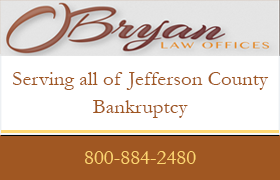Masonic Home Bankruptcy & Debt Lawyer, Kentucky
-
Sponsored Law Firm
-
 x
x

Click For More Info:
-
Obryan Law Offices
9311 Preston Hwy Louisville, KY 40229» view mapBankruptcy Lawyers That Fight For You
Obryan Law Offices has helped thousands of families restore peace and order to their lives. Call us today!
800-884-2480
Alisha Triplett
Banking & Finance, Bankruptcy, Collection
Status: In Good Standing *Status is reviewed annually. For latest information visit here
Dawn R. Elliott
Adoption, Alimony & Spousal Support, Bankruptcy, Child Support, Family Law
Status: In Good Standing *Status is reviewed annually. For latest information visit here
FREE CONSULTATION
CONTACTHouston M. Oppenheimer
Bankruptcy, Business Organization, Casinos, Estate Planning, Gaming & Alcohol
Status: In Good Standing *Status is reviewed annually. For latest information visit here
Richard A. Schwartz
Workout, Consumer Bankruptcy, Commercial Bankruptcy, Bankruptcy
Status: In Good Standing *Status is reviewed annually. For latest information visit here
FREE CONSULTATION
CONTACTEmily Lynn Pagorski
Litigation, Civil Rights, Insurance, Bankruptcy
Status: In Good Standing *Status is reviewed annually. For latest information visit here
Kaitlyn Jones George
Commercial Real Estate, Securities, Corporate, Credit & Debt
Status: In Good Standing *Status is reviewed annually. For latest information visit here Licensed: 10 Years
Irvin D Foley
Bankruptcy, Business & Trade, Litigation
Status: In Good Standing *Status is reviewed annually. For latest information visit here
Lea Pauley Goff
Litigation, Estate Planning, Bankruptcy, Bankruptcy & Debt
Status: In Good Standing *Status is reviewed annually. For latest information visit here
Matthew Ryan Lindblom
Real Estate, Lawsuit & Dispute, Bankruptcy, Bankruptcy & Debt, Collection
Status: In Good Standing *Status is reviewed annually. For latest information visit here
Shawn Martin Spalding
Real Estate, Estate Planning, Employee Rights, Bankruptcy
Status: In Good Standing *Status is reviewed annually. For latest information visit here

 Julie Obryan Jefferson, KY
Julie Obryan Jefferson, KY About UsObryan Law Offices
About UsObryan Law Offices FAQFrequently Asked Questions
FAQFrequently Asked Questions